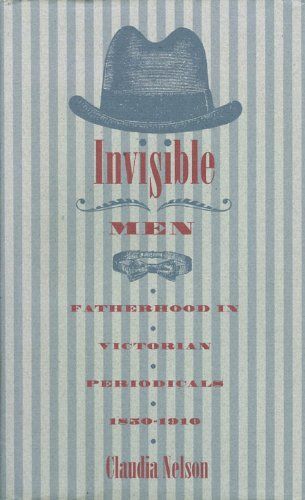
Invisible Men Fatherhood in Victorian Periodicals, 1850-1910
Invisible Men focuses on the tremendous growth of periodical literature from 1850 to 1910 to illustrate how Victorian and Edwardian thought and culture problematized fatherhood within the family. Claudia Nelson shows how positive images of fatherhood virtually disappeared from the literature of the day as motherhood claimed an exalted position with imagined ties to patriotism, social reform, and religious influence. Nelson's research draws on the rapidly expanding genre periodicals of the time - political, scientific, domestic, and religious. The study begins in 1850, a point marking the end of the pre-Victorian role of the father in the middle-class home - as one who led the family in prayer, administered discipline, and determined the children's education, marriage, and career. In subsequent decades, fatherhood was increasingly scrutinized while a new definition of motherhood and femininity emerged. The solution to the newly perceived dilemma of fatherhood appeared rooted in traditional feminine values - nurturance, selflessness, and sensitivity. Victorian sanctification of motherhood led to three new constructs for the role of the father within the family: the "maternal father" was eulogized for his feminine moral influence and cooperation; the "separate-but-equal father" was measured by detachment and self-discipline; and the "abdicating father" conceded, with enthusiasm or regret, his familial insignificance. Consequently, the significance of maternal influence extended well into adult male life. By the end of the century, many fathers needed as much nurturing, or mothering, from their wives as did the children themselves. Social institutions reinforced this diminution in the social value of the father. The legal system assigned control over paternity to the state, while educators and reformers raised significant questions about the role of the school (and the state) as surrogate father. Moreover, modern science redefined its views on male sexuality and eugenics, reducing the father, in effect, to that of sperm donor. The critique presented in Invisible Men extends our contemporary debate over men's proper role within the family, providing a historical context for the various images of fatherhood as we practice and dispute them today.